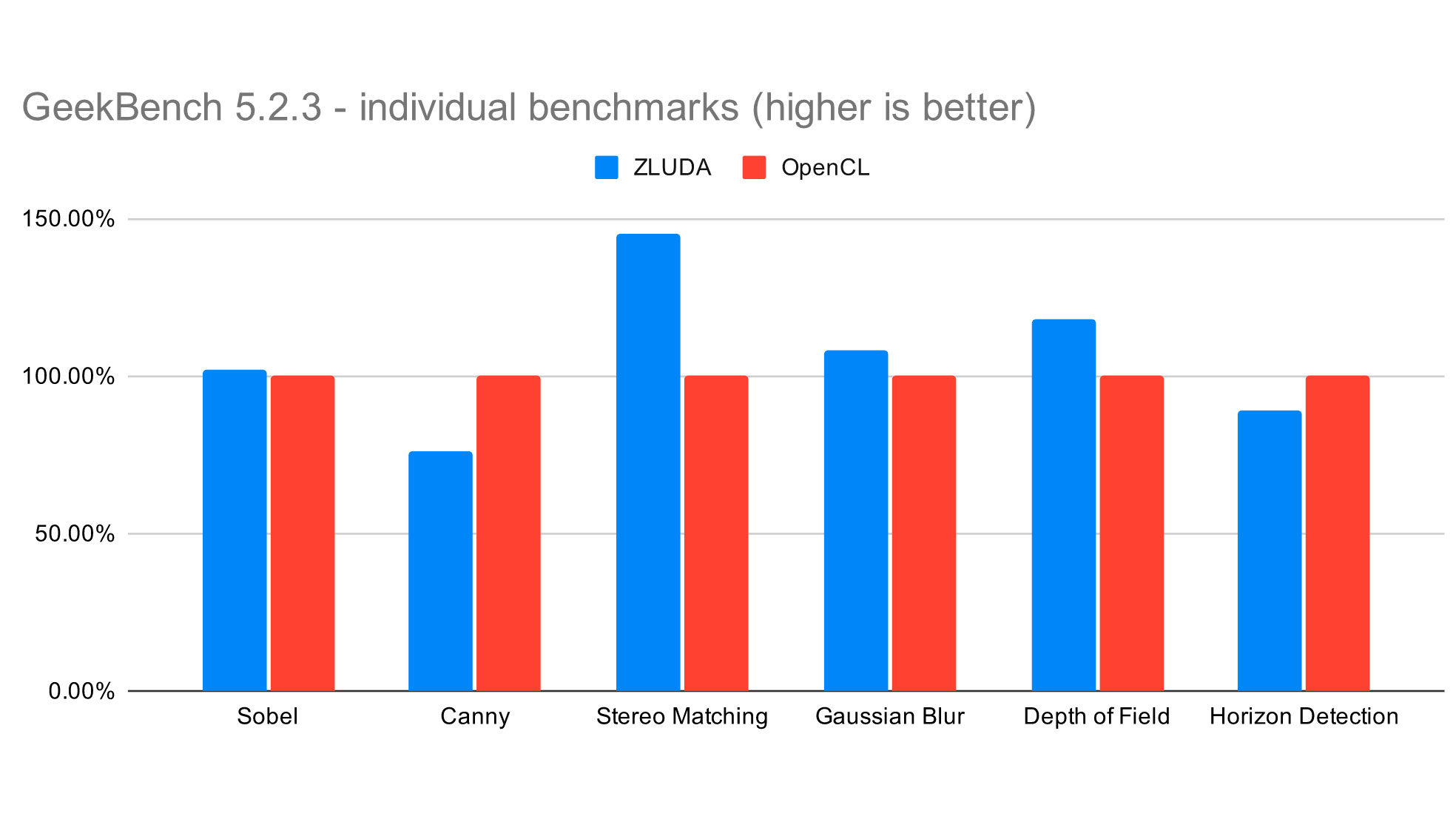ZLUDA Project Paves the Way for CUDA on Intel GPUs
Get Tom's Hardware's best news and in-depth reviews, straight to your inbox.
You are now subscribed
Your newsletter sign-up was successful
ZLUDA, described as "a drop-in replacement for CUDA on Intel GPU," is threatening Nvidia's propiertary CUDA (Compute Unified Device Architecture) ecosystem. The independent project (via Twitter user Longhorn) has already provided a proof of concept to run unaltered CUDA applications on non-Nvidia graphics cards.
The foundation of ZLUDA is none other than Intel's oneAPI Level Zero specifications. It's a private project and in no way connected to Intel or Nvidia. Confessedly, ZLUDA is still in its early days and lacks full CUDA support. Therefore, many CUDA applications will not work with ZLUDA. As a matter of fact, the author has only been able to get Geekbench 5 to run with ZLUDA, which brings us to the next topic: Performance.
The creator of ZLUDA claims that it provides "near-native" performance, insinuating that there is almost no performance loss. He provided GeekBench 5.2.3 results for an Intel Core i7-8700K, which wields Intel's UHD Graphics 630 iGPU, with an OpenCL and ZLUDA run. For the latter, the author tricked GeekBench into thinking that the Intel iGPU was a slow Nvidia GPU. Nevertheless, the results are from the same iGPU.
The result showed that ZLUDA's performance was up to 10% faster in comparison to OpenCL performance. Overall, we're looking at around a 4% uplift from the set of benchmarks.
The author made it clear that ZLUDA is completely dissimilar to AMD HIP or Intel DPC++ in the sense that the latter two are tools for programmers to port applications to the the specific API of choice. ZLUDA, on the other hand, doesn't require any extra effort since CUDA applications simply work on an Intel GPU — as long as the CUDA subset is supported, of course.
In its current state, ZLUDA is only compatible with Intel Gen9 iGPUs (Skylake through Comet Lake), but there is planned support for the chipmaker's upcoming Xe GPUs as well. ZLUDA doesn't support AMD GPUs, however, the author delved into the idea that it should be technically possible to do so. Nvidia might not be too happy with the idea, but others surely will be.
Get Tom's Hardware's best news and in-depth reviews, straight to your inbox.

Zhiye Liu is a news editor, memory reviewer, and SSD tester at Tom’s Hardware. Although he loves everything that’s hardware, he has a soft spot for CPUs, GPUs, and RAM.
-
Gomez Addams I think this is terriffic! I do HPC work with CUDA and I think it would be great to have alternatives.Reply
However, we still await the decision on the dispute between Google and Oracle over copyright of APIs. If Oracle wins then Nvidia could possibly put a stop to this. I hope Google wins - APIs should not be copyrighted in my opinion, but their implementations should be. -
neojack Very interesting, from a legal point of viewReply
but if this is judged as illegal, all kinds of nasty effects will occur.
For exemple : what prevent oracle from changing the licence of Java and ask for royalties for all java based apps after a certain date or something ?
or microsoft from asking royalties for apps using DX ?
etc
i know they can't change an active licence, but they can change the licence starting a certain date, and applying it to all apps created after this date.
And even if they swear they won't, legally it wouldn't be mandatory to do so.
